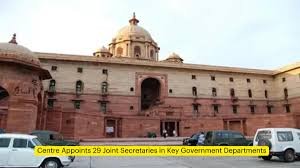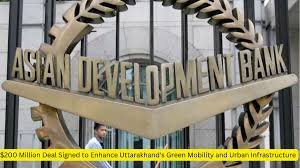Centre Appoints 29 Joint Secretaries in Key Government Departments
The Government of India has recently made significant appointments, designating 29 joint secretaries across various key departments. This decision is aimed at enhancing the efficiency and effectiveness of governance in crucial areas, particularly in light of ongoing developmental projects and reforms. The appointments span departments related to finance, health, and infrastructure, among others, indicating a strategic move to bolster administrative capabilities.
Objectives Behind the Appointments
The primary goal behind these appointments is to streamline decision-making processes within the government. By placing qualified individuals in joint secretary positions, the Centre aims to improve the execution of policies and programs. This restructuring is particularly timely as the country prepares for upcoming challenges, including economic recovery post-pandemic and implementing various developmental schemes.
Profiles of the Newly Appointed Joint Secretaries
Among the 29 appointed joint secretaries, several are notable figures from diverse backgrounds, including IAS officers and those with significant experience in public administration. Their expertise is expected to contribute positively to their respective departments. The appointments also reflect a mix of seasoned professionals and young administrators, bringing fresh perspectives into governance.
Impact on Governance and Administration
The introduction of new joint secretaries is anticipated to lead to a more dynamic approach to governance. With an infusion of talent and experience, the government hopes to foster innovative solutions to persistent issues, ranging from bureaucratic inefficiencies to policy implementation challenges. Enhanced collaboration among departments is also expected, thereby promoting a more integrated approach to governance.
Conclusion
The appointment of 29 joint secretaries marks a pivotal step towards enhancing administrative efficiency within the Indian government. With their diverse skills and experiences, these officials are set to play a crucial role in shaping the future of public administration in the country.

Why This News is Important
Strengthening Governance
The recent appointments of 29 joint secretaries in key government departments by the Centre are pivotal for strengthening governance. These positions are essential in shaping policies and implementing government initiatives, which directly impact the lives of citizens. Effective governance ensures that public resources are utilized efficiently, and developmental goals are met, which is crucial for national progress.
Enhancing Administrative Efficiency
The infusion of new talent into the bureaucracy can lead to enhanced administrative efficiency. With experienced professionals taking on these roles, the government aims to reduce bureaucratic red tape and expedite decision-making processes. This efficiency is vital for timely execution of policies, especially in areas like health, finance, and infrastructure, where delays can have significant consequences.
Addressing Contemporary Challenges
As India navigates various contemporary challenges, including economic recovery and public health crises, the role of joint secretaries becomes even more critical. Their expertise can help in formulating strategies that address these issues effectively. The appointments reflect a proactive approach by the government to ensure that capable leaders are at the helm during challenging times.
Promoting Innovation and Collaboration
The diverse backgrounds of the newly appointed joint secretaries can foster innovation in policy-making and implementation. With a mix of experienced and young administrators, the government is likely to see new ideas and collaborative approaches to longstanding issues. This diversity is essential for creating adaptive and resilient governance structures.
Future Implications
The appointment of joint secretaries not only impacts immediate governance but also has long-term implications for the administrative framework of the country. Their roles will influence the future trajectory of government policies, making it crucial for citizens and stakeholders to stay informed about these developments.
Historical Context
The role of joint secretaries in the Indian government has evolved over the years, reflecting the changing dynamics of governance. Historically, these positions were established to facilitate more efficient administration and decision-making. The joint secretary is a pivotal rank in the Indian Administrative Service (IAS), acting as a link between higher officials and field officers.
In the context of previous reforms, the government has periodically revamped bureaucratic structures to respond to emerging challenges. For instance, during the economic liberalization of the 1990s, there was a significant influx of professionals into governance, leading to enhanced expertise in policy formulation. More recently, the emphasis on digital governance and transparency has necessitated appointing individuals with technical skills and a modern outlook, further underscoring the importance of such appointments.
Key Takeaways from “Centre Appoints 29 Joint Secretaries in Key Government Departments”
| S.No | Key Takeaway |
|---|---|
| 1 | The Centre appointed 29 joint secretaries to enhance governance efficiency. |
| 2 | Appointments span critical departments such as finance, health, and infrastructure. |
| 3 | The move aims to address contemporary challenges like economic recovery and health crises. |
| 4 | A mix of experienced and young professionals is expected to bring innovation to governance. |
| 5 | The appointments reflect a proactive approach by the government to improve administrative effectiveness. |
Important FAQs for Students from this News
Q1: What is the role of a joint secretary in the Indian government?
A: A joint secretary is a senior administrative officer in the Indian government responsible for assisting the secretary of a department in policy formulation, implementation, and management of various government functions.
Q2: Why were 29 joint secretaries appointed recently?
A: The appointments were made to enhance the efficiency and effectiveness of governance, particularly in key departments related to finance, health, and infrastructure, in response to ongoing developmental projects and challenges.
Q3: How does the appointment of joint secretaries impact governance?
A: The appointment of joint secretaries is expected to streamline decision-making, improve policy execution, and foster innovative solutions to administrative challenges, ultimately leading to more effective governance.
Q4: What backgrounds do the newly appointed joint secretaries come from?
A: The newly appointed joint secretaries include IAS officers and professionals with significant experience in public administration, bringing a diverse set of skills to their respective roles.
Q5: How does this appointment relate to the current challenges faced by India?
A: The appointment is part of the government’s strategy to address contemporary challenges such as economic recovery post-pandemic, public health issues, and efficient implementation of various developmental schemes.
Some Important Current Affairs Links















